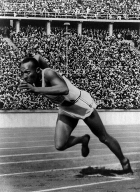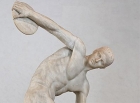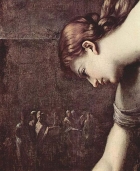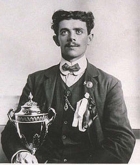Classroom Resources
These resources can take many forms but will be aimed at helping younger children explore historical concepts through their senses and developing their language and communication. For example, artefacts, visual images of various kinds, stories and people themselves all help younger children to explore ideas and work out problems for themselves and with support from informed adults.
-

Case Study: Historical information and the local community
ArticleClick to view -

English Heritage's Heritage Explorer
ArticleClick to view -

Constructivist chronology and Horrible Histories
ArticleClick to view -

From Champion to Hero: Engaging Pupils in a study of significant Olympians
ArticleClick to view -

Primary History and planning for teaching the Olympics - four curricular models
ArticleClick to view -

Story, myth and legend: The Story of Atalanta
ArticleClick to view -

An Olympic Great? Dorando Pietri
ArticleClick to view -

William Brookes and the Olympic Games
ArticleClick to view -

'Doing Local History' through maps and drama
ArticleClick to view -

Planning for local history
ArticleClick to view -

Local railway history: using visual resources
ArticleClick to view -

A Local History Toolkit
ArticleClick to view -

Sutton Hoo - Classroom archaeology in the digital age
ArticleClick to view -

Artefacts handling at Brunel's SS Great Britain
ArticleClick to view -

Artefacts and art facts: images of Sir Francis Drake
ArticleClick to view -

History, artefacts and storytelling in the 2011 primary curriculum
ArticleClick to view -

A view from the KS1 classroom - investigating an artefact
ArticleClick to view -

Extending Primary Children's thinking through artefacts
ArticleClick to view -

Doing History with Objects
ArticleClick to view -

Pride in place: What does historical geographical and social understanding look like?
ArticleClick to view

